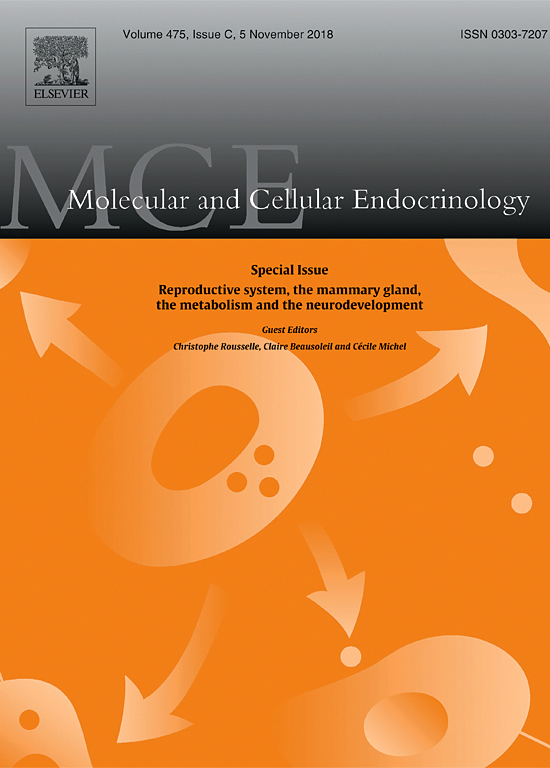NRG1 signalling regulates the establishment of Sertoli cell stock in the mouse testis.
Mol Cell Endocrinol. 2018 Jul 21. pii: S0303-7207(18)30220-X. doi: 10.1016/j.mce.2018.07.004. [Epub ahead of print]
Gregoire EP1, Stevant I2, Chassot AA1, Martin L1, Lachambre S1, Mondin M1, de Rooij DG3, Nef S2, Chaboissier MC4.
Author information
1. Université Côte d’Azur, CNRS, Inserm, iBV, France.
2. Department of Genetic Medicine and Development, Faculty of Medicine, University of Geneva, Switzerland.
3. Reproductive Biology Group, Division of Developmental Biology, Department of Biology, Faculty of Science, Utrecht University, Utrecht 3584 CH, the Netherlands.
4. Université Côte d’Azur, CNRS, Inserm, iBV, France. Electronic address: chaboiss@unice.fr.
Abstract
Testis differentiation requires high levels of proliferation of progenitor cells that give rise to two cell lineages forming the testis, the Sertoli and the Leydig cells. Hence defective cell cycling leads to testicular dysgenesis that has profound effects on androgen production and fertility. The growth factor NRG1 has been implicated in adult Leydig cell proliferation, but a potential function in the fetal testis has not been analysed to date. Here we show that Nrg1 and its receptors ErbB2/3 are already expressed in early gonadal development. Using tissue-specific deletion, we further demonstrate that Nrg1 is required in a dose-dependent manner to induce proliferation of Sertoli progenitor cells and then differentiated Sertoli cells. As a result of reduced numbers of Sertoli cells, Nrg1 knockout mice display a delay in testis differentiation and defects in sex cord partitioning. Taken together Nrg1 signalling is essential for the establishment of the stock of Sertoli cells and thus required to prevent testicular hypoplasia.

